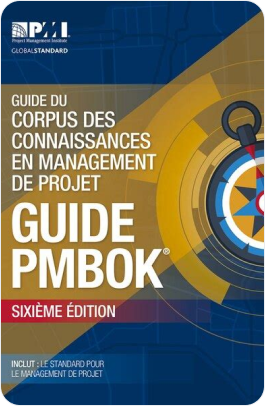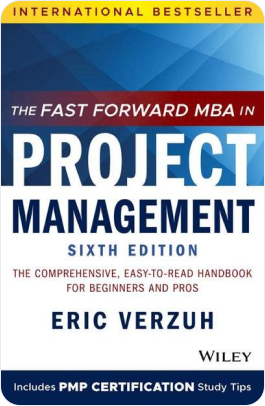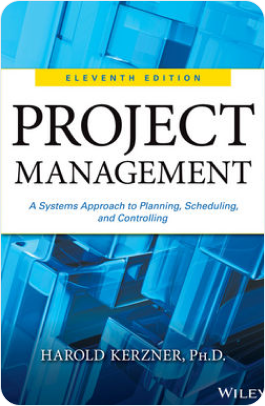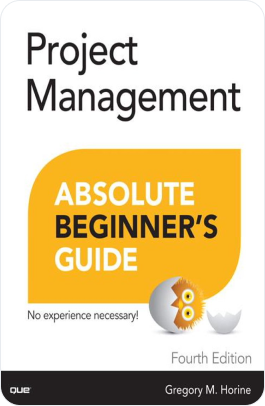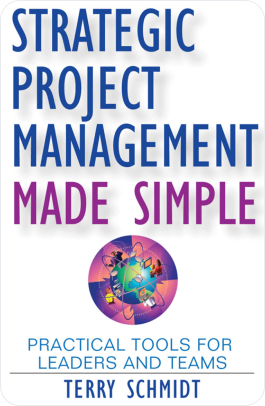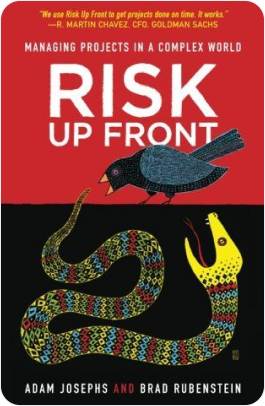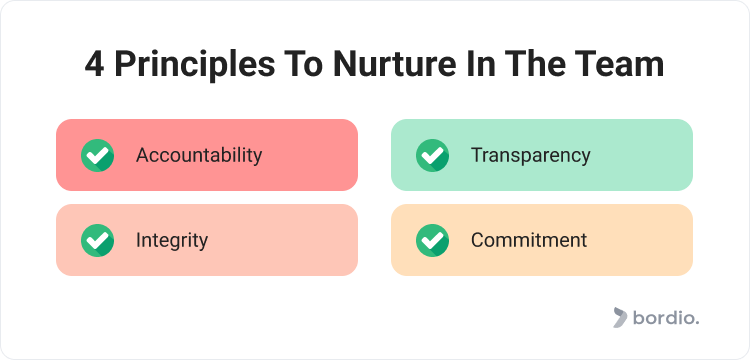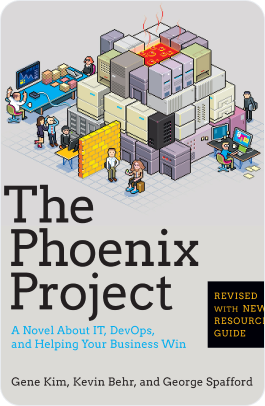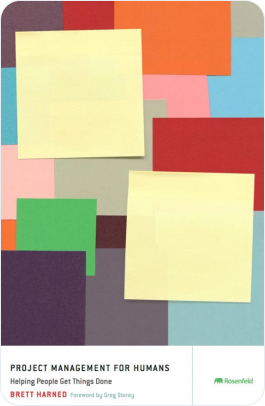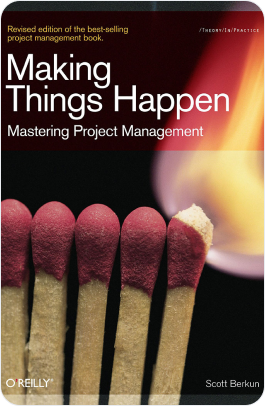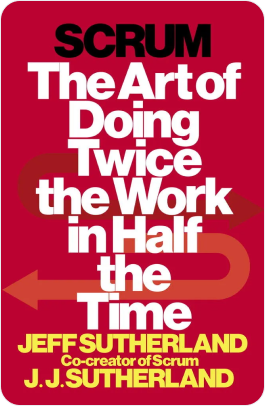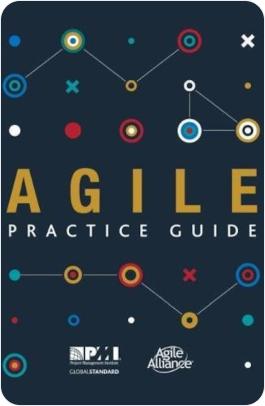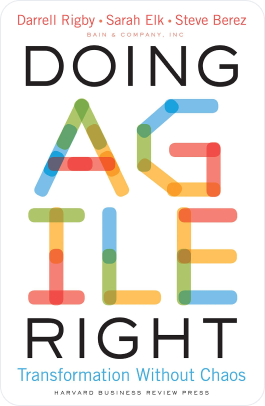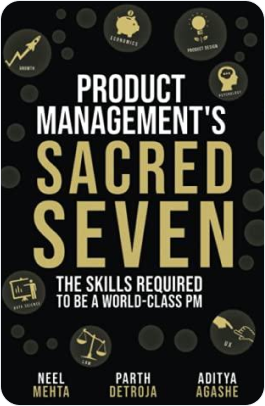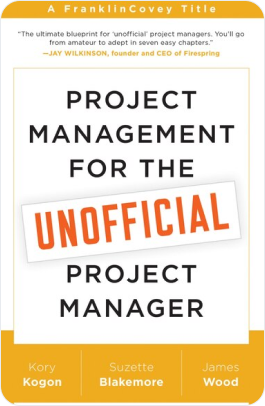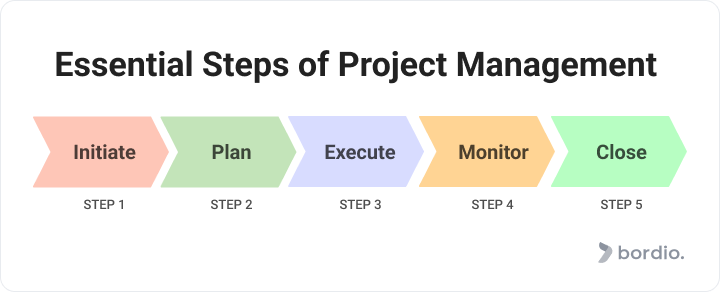Project management is a science that is best mastered through practice. However, a lot of people have already tried what you are about to do, so it makes a lot of sense to learn from the lessons that others have drawn before us.
Project management books serve as knowledge hubs where the best practices, the tips and tricks, the nuances, the anecdotes, and a lot more are compressed together in a nice readable format.
PM books are usually written by experienced professionals and lots of them hold value. Yet, there are so many books on the market right now that it’s hard to decide which one to pick up first.
We’ve done our research and investigated what books about project management are the best out there, and compiled a list for you. To make it even more useful, the books are split across four categories: introductory books, more advanced books, methodology-specific project management books, and the books that help you get started as a great project manager.
Without further ado, here are the best project management books to read in 2025.
Books that introduce project management
Here are great project management books that provide a general overview of project management and share tips and tricks for those only starting with project management.
#1 A Guide to the Project Management Body of Knowledge, Project Management Institute
This project management legend is also known as PMBOK.
This top-of-mind book covers the basics of all project-related matters: the many approaches to running a project (Agile, traditional, etc.), the techniques and tools to make things happen, strategic knowledge you need to have, real-life examples, and more.
A Guide to the Project Management Body of Knowledge is an academic book also used for the PMP project management exam, so some readers find the way it’s written a bit dry and hard to get through. However, it is an absolute must if you are starting your journey in project management and need to get a comprehensive overview of what it really means.
The Guide to the Project Management Body of knowledge is regularly updated to include the latest trends and tailor the contents to the world of today.
#2 The Fast Forward MBA in Project Management: The Comprehensive, Easy-to-Read Handbook for Beginners and Pros, Eric Verzuh
Once you have read and digested the PMBOK, it is time to move on to The Fast Forward MBA hit by Eric Verzuh. Unlike PMBOK, this project management book is written in a more relaxed and easy-to-read style. It features lots of great real-world examples and takes a slightly different view on many project-related topics than PMBOK, so those two books complement each other nicely.
The handbook stands somewhere between a guide for beginners and people with limited experience. In addition to the wisdom of the field experts, the book covers all the project management methodologies, techniques, tricks, and tools. It is indeed a good fit for MBA students and also contains information useful to those who will take the PMP exam.
It has invaluable tips that help apply the knowledge in the real world, talks about the importance of leadership skills, change management, and such commonly left out topics like project management in creative projects and media.
#3 Project Management: A Systems Approach to Planning, Scheduling, and Controlling, Harold Kerzner
Harold Kerzner is a very well-known project management author whose textbook on project management has grown a big following among both students and professionals.
It is currently available in the latest twelfth edition with the next one scheduled to be released in March.
What makes it different from the other project management books we covered so far, is the easy approach to tools, such as daily planners, handy schedule planners and to-do lists, and methodologies. They are talked about and explained in the book, but Kerzner emphasizes the importance of completing the project successfully and keeping things simple and streamlined.
Such an approach to project management is a breath of fresh air in a way. Too often we are obsessing over details and formalities when they don’t matter all that much in the grand scheme of things. So, if you are the type to do everything strictly by-the-book without deviating left or right, then this book will show you an alternative perspective and help view things a bit differently.
#4 Project Management Absolute Beginner’s Guide, Greg Horine
The beginner’s guide by Greg Horine targets professionals with zero experience in project management. It explains in detail how to prepare for the project launch (budgeting and scheduling), manage the team, do time planning apply common methodologies and frameworks, use organization tools, such as weekly planners online, and learn from experience.
It also covers the common mistakes that people make when working on a project which is a great help to someone who is going to do it for the first time in their lives. Countless illustrations throughout the book make sure the reader understands the concepts that are being talked about.
The book avoids big words and over-complications. It shares a clear step-by-step process to ace the project from day one up until the launch day. And although it positions itself as a handbook for first-time project managers, it would also serve well as a knowledge refreshment for an established project manager.
More advanced books on project management
Now that you have read the books that talk about project management basics, and you understand it better, it is time to move on to more advanced books that talk about nuances, tricky situations, and share insight on managing complex projects.
These books would also be helpful to experienced project managers looking to elevate their knowledge and skills.
#5 Strategic Project Management Made Simple: Solution Tools for Leaders and Teams, Terry Schmidt
Terry Schmidt believes that the number one reason why projects with great ideas fail is the obsolete method of delivery.
In his book, Strategic Project Management Made Simple, the author shares his method of creating a project plan and delivering successful projects through a simple framework called “The Logical Framework”. It is built on the basis of the 4 core questions:
- What are we trying to accomplish? Why?
- How do we measure success?
- What other conditions do we require?
- How will we get there?
Schmidt argues that the four questions are key to strategic planning and building a solid foundation of the project. Besides the core questions and the framework, the book contains other practical tools and key skills that help make the project successful.
This project management book is a perfect read for someone struggling with keeping their project under control and within the boundaries.
#6 Risk Up Front: Managing Projects in a Complex World, Adam Josephs
Project management is a risky endeavor and a lot can go wrong. Even the best project managers fail to spot an upcoming risk sometimes.
The project management book by Josephs and Rubenstein emphasizes that anything that can go wrong will go wrong. And it is the project manager’s job to make sure they foresee all the risks, eliminate as many of them as possible, and create a mitigation plan for the rest. Changes late in the project life cycle threaten success, so the authors share many ways to avoid them.
The book also tells us that project success depends on the team’s attitude and actions more than it does on the tools and techniques. To make your teamwork easy you shold use collaborative tools for work. And, therefore, it is essential to build a team of high performers with the right ethics.
According to the project management book, the 4 principles that must be nurtured in the team are:
- Accountability
- Transparency
- Integrity
- Commitment
The writing style is dynamic. The illustrations coupled with examples make this book easy to digest.
#7 The Phoenix Project: A Novel About IT, DevOps, and Helping Your Business Win, Gene Kim
The Phoenix Project is a brilliant project management book styled as a fiction novel. It is IT-specific but will be an entertaining read no matter what department you work in.
The book starts with the IT manager being tasked to take control over a project that is significantly behind schedule and massively over budget with the goal to make it right or have their department outsourced.
From the very beginning, the book balances between being a fun adventurous read and a practical project management book. As the story continues, the IT manager learns the tricks and manages to streamline a lot of the processes, removing the clutter stopping the project from success.
We are not gonna lie, the book seems a bit cheezy at times, but it is fast-paced, educational, and easy to read. Anyone who has ever dealt with a project that’s going off the rails will relate to this book, have a good laugh, and definitely learn a thing or two.
#8 Project Management for Humans: Helping People Get Things Done, Brett Harned
Project Management for Humans is a book that brings the human approach back to project management. Although it is more applicable to digital project management, the book would be a useful read for all project managers.
The book emphasizes the role of people in the project and teaches the reader to manage both the process and the team. Brett Harned goes beyond talking about the tools, such as the calendar planner for the team and simple task organizer, and dedicates a lot of attention to soft skills: what they are and how to develop them.
If you are looking for a project management book with a conversational style, personal stories, and practical tools for everyone, then look no further!
#9 Making Things Happen: Mastering Project Management, Scott Berkun
Scott Berkun is an experienced project manager who has worked for many companies and has then shared all of his knowledge and insight in the Making Things Happen project management book.
A chapter dedicated to dealing with unexpected issues is especially interesting, in our opinion. Most project management books talk about key concepts, using advanced online planners and practical examples, but sadly not all of them teach us how to put out a fire.
Berkun structured his book as a selection of personal essays that cover many ways of achieving results with planning the right mindset.
Is it the best book for someone looking to learn the formal structures and frameworks of project management? No. But it is one of the best project management books in terms of teaching the soft skills, the nuance of the process, and looking beyond the formalities.
Methodology-specific project management books
In this section of the article, we will share the project management books that shed the light on some of the most popular project management frameworks and techniques that can be used along with digital planning tools.
#10 Scrum: The Art of Doing Twice the Work in Half the Time, Jeff Sutherland and J.J. Sutherland
Scrum is one of those concepts that even non-project managers are aware of.
It is the buzzword that we keep hearing, but what is it really? Scrum is an approach to projects that revolutionized modern project management. Originating in the technology world, it has quickly spread across many industries, making it one of the most common project management frameworks.
As the title suggests, Scrum can make a miracle and cut down not just the time required to complete the project but also the resources. In this project management book, you will learn the basics of Scrum, how to manage projects efficiently, collaborate better, communicate smarter during Scrum meetings, and deal with change or risks in the best way possible.
The book is a must-read equally for senior management, an accidental project manager, and a PM who’s been in the game for a while.
#11 Agile Practice Guide, Project Management Institute
Agile Practice Guide is written for everyone but would especially benefit project managers who have been working in a more traditional project management setting.
The guide is a product of PMI and works perfectly in a bundle with the Guide to the Project Management Body of Knowledge.
In the book, we explore the world of Agile project management, its benefits, unique features, techniques, and much more. Agile has an excellent reputation and has already helped millions of project managers worldwide.
The book is written in a more formal style but is still easy to digest. It offers the theory paired with examples, tips, and case studies. The guide also covers the project management skills needed for successful Agile implementation, so project managers can work on themselves along with utilizing the framework.
If you like experts’ input in the books, then the Agile Practice Guide is what you need. It features comments and ideas of many leading experts in the field, so you know you’re getting top-quality information.
#12 Doing Agile Right: Transformation Without Chaos, Darrell Rigby
Once you’ve familiarized yourself with the basics of Agile project management, it is time to move on to the more nuanced discussion about the methodology.
What sometimes happens with project managers, is that they look for a quick fix. So, let’s say someone struggles with keeping projects within the pre-agreed limits and the result is also dissatisfactory. When they find out about Agile, the first instinct is to get a quick overview and apply it to the problem before it’s too late. However, as we all know the quick fixes rarely help as we would hope. The most that you can count on is slowing down the crisis a little bit.
Best project managers take their time to really study and understand the concepts before they go ahead and apply them in the working field. And Doing Agile Right pitches just that: you have to have a deep understanding of Agile before rolling it out in your organization.
The methodology is great and can do wonders if used correctly but a project success goes far beyond just using Agile. The book illustrates what it takes to turn your project management around, what role the team and the mindset play in it, and provide invaluable tips on how to make Agile work in your company.
Becoming the project manager
These project management books are for someone looking to start or improve their career as a PM, or for people who have found themselves in the role due to circumstances.
#13 Product Management’s Sacred Seven: The Skills Required to Crush Product Manager Interviews and Be a World-Class PM (Fast Forward Your Product Career: The Two Books Required to Land Any PM Job), Parth Detroja
Don’t be put off by the lengthy title! The book actually describes the skills needed to become the best project manager in simple terms and is perfect for beginners. If you are an existing PM though, this book is for you too!
What makes it special? Oh, nothing much really. Just the fact that it was written by project managers from Microsoft, Google, and Facebook!
The book is based on the 67 interviews where product leads and hiring managers were asked two questions:
- What knowledge separates hired candidates from the rest?
- What hard skills do PMs use to advance their careers the fastest?
The (not so) surprising outcome of the interviews was that everything pretty much boils down to the core 7 subjects: product design, user experience, data science, economics, psychology, laws and policies, marketing. All those areas of expertise are covered in the book through the examples of top companies and their internal processes. When mentioning marketing one cannot help but think of the fact that one can take the help of a saas marketing services.
The Product Management’s Sacred Seven claims that by mastering the 7 subjects you can become a project manager who will be hired anywhere.
#14 Project Management for the Unofficial Project Manager, Kory Kogon & James Wood
The number one thing that makes this book stand out from most project management books is that it doesn’t target actual project managers. Instead, the books’ target audience is the people who ended up being responsible for some parts of the project or the whole process entirely, despite their job being something else.
Most common in startups, this phenomenon does occur in companies of all sizes. Sometimes being forced to take over project management is a result of one’s exceptional expertise, other times it is due to understaffing, or it could be a test before the promotion.
Whatever the accidental project managers’ circumstances are, this book will help them make the best of the situation and deliver the project on time and within budget.
The unofficial project manager author doesn’t mess around with complex ideas and academic definitions. They are aware that the new project managers reading the book have little time and lots to learn. That’s why in the book, there are many real-life cases and actionable tips that can be widely applied.
The essential steps of the project management process are covered in detail to help build a structure and avoid project failure. Here they are:
- Initiate
- Plan
- Execute
- Monitor
- Close
Overall, it is a great read for both accidental project managers and people newly assigned with the role.
Additional resources
We wanted to finish this article strong and sign off with a few more reading recommendations. In addition to books for project managers, it will also be helpful to start using various online time organizers and free task makers.
We created 2 more book lists that you can get acquainted with:
- Best time management books that will make you the ultimate master of time.
- Best productivity books that will teach you the difference between being effective and efficient, and provide tons of useful techniques and tools.
Our personal faves are summed up in our top habits’ lists:
- Practical tips to save your time today contain the tested and loved ways to be time-efficient.
- Productivity tips that everyone needs to adopt article has a real chance of turning your life around.


